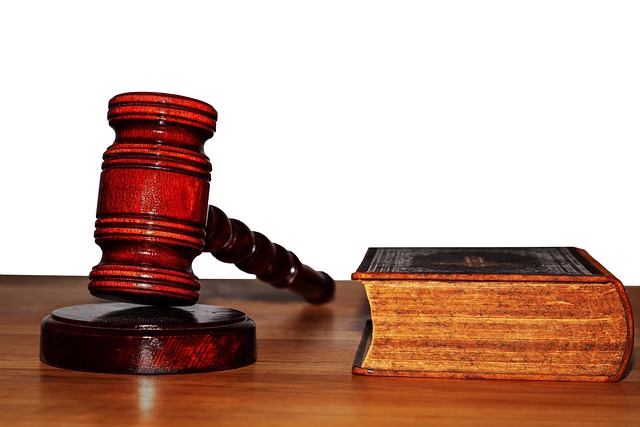The Role of Defense Counsel in Criminal Procedure is pivotal in consumer protection suits, where they balance client rights with law enforcement. These lawyers navigate complex legal landscapes, scrutinize evidence, and challenge accusations to protect clients from severe consequences. Their strategic arguments, grounded in a deep understanding of consumer law, aim for favorable outcomes like settlements or jury acquittals, ensuring justice without bias.
Consumer protection suits play a vital role in safeguarding individuals from unfair business practices. This article delves into the legal intricacies of these suits, with a focus on the critical role of defense counsel in protecting accused entities. We explore strategic defenses, successful case studies, and practical tactics for navigating these complex cases. Understanding the criminal procedure implications is essential, highlighting the importance of skilled representation to ensure fair outcomes for all parties involved.
- Understanding Consumer Protection Suits: A Legal Perspective
- The Defense Counsel's Role in Protecting Accused Individuals
- Strategies and Tactics for Effective Defense in Consumer Cases
- Case Studies: Examining Successful Defense Outcomes in Consumer Protection Lawsuits
Understanding Consumer Protection Suits: A Legal Perspective
Consumer Protection Suits are legal battles aimed at safeguarding the rights of individuals against unfair business practices and fraudulent activities. From a legal perspective, these cases play a pivotal role in maintaining market integrity and ensuring consumer trust. When companies engage in deceptive or misleading conduct, it’s not just consumers who suffer; the broader economy can be distorted, leading to an unfair playing field for honest businesses.
The Role of Defense Counsel in Criminal Procedure is especially pertinent here, as many Consumer Protection Suits have criminal undertones, particularly when dealing with charges like fraud. Defense counsel in these cases must navigate complex legal landscapes, ensuring their clients’ rights are protected while also aiming to avoid indictment and, where applicable, jury trials across the country. Effective legal strategy involves a delicate balance between challenging prosecutorial claims and upholding the integrity of consumer protection laws, ultimately striving to achieve just outcomes for all parties involved.
The Defense Counsel's Role in Protecting Accused Individuals
In consumer protection suits, the Defense Counsel plays a pivotal role in safeguarding the rights and interests of accused individuals. As part of the general criminal defense strategy, their primary task is to ensure a fair trial within the complex landscape of criminal procedure. This involves meticulously examining evidence, challenging the prosecution’s claims, and presenting a robust defense that protects the individual from unfounded accusations.
The counsel’s expertise lies in achieving extraordinary results, often navigating intricate legal issues across the country. They must be adept at interpreting laws and regulations related to consumer protection, while also defending their client against potential penalties. By leveraging their knowledge and skills, they can safeguard individuals from harsh consequences, ensuring that justice is served without bias or overreach.
Strategies and Tactics for Effective Defense in Consumer Cases
In consumer protection suits, a robust defense strategy is paramount to achieving a favorable outcome, especially in high-stakes cases where an unprecedented track record can be a game-changer. Defense counsel plays a pivotal role akin to that of a navigator in criminal procedure; they must guide clients through complex legal landscapes and intricate fact patterns. A comprehensive defense strategy involves meticulous case preparation, including a thorough review of relevant laws, regulations, and previous precedents.
Effective tactics include challenging the plaintiff’s evidence, exposing any inconsistencies or weaknesses, and presenting a compelling alternative narrative. The role of defense counsel extends to articulating strong legal arguments based on the unique circumstances of each case. By employing these strategies, counsel can achieve the ultimate goal: securing complete dismissal of all charges, thereby protecting clients’ interests and reputations.
Case Studies: Examining Successful Defense Outcomes in Consumer Protection Lawsuits
Successful defense outcomes in consumer protection lawsuits highlight the crucial role of defense counsel in navigating complex legal procedures. When corporate and individual clients face allegations, skilled attorneys play a pivotal part in the criminal procedure. By employing strategic arguments and leveraging relevant case law, defense counsel can challenge the validity of claims, exposing weaknesses in plaintiff’s evidence. These tactics often lead to settlements or, in some cases, jury trials where the defendant is acquitted.
Case studies reveal that well-prepared defenses can significantly impact outcomes. For instance, a study analyzing recent consumer protection lawsuits revealed that businesses with robust legal representation were more likely to achieve favorable verdicts. This underscores the importance of experienced defense counsel who understand not only the intricacies of consumer law but also the respective business’s unique circumstances. Such expertise enables them to craft compelling defenses, ensuring justice is served while protecting the interests of their clients.
Consumer protection lawsuits are a complex aspect of modern legal practice, requiring a nuanced understanding of both consumer rights and the accused’s defenses. As discussed, the role of defense counsel is pivotal in protecting individuals facing such charges. By employing strategic tactics and leveraging their expertise, attorneys can navigate these cases effectively. The case studies presented highlight successful defense outcomes, demonstrating that with careful navigation through the legal process, individuals can safeguard their interests. Understanding the dynamics between consumer rights and defenses, as well as the crucial role of defense counsel, is essential in ensuring fair outcomes for all parties involved in consumer protection lawsuits.






